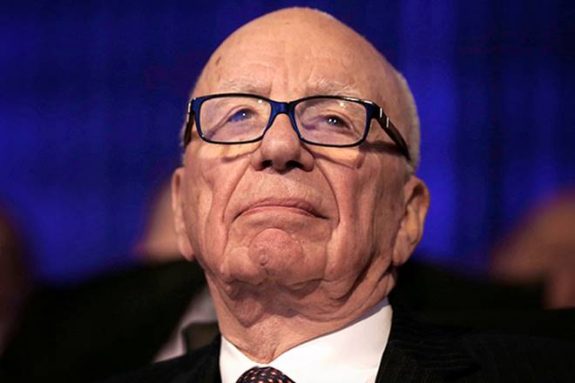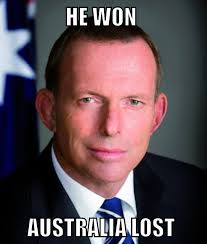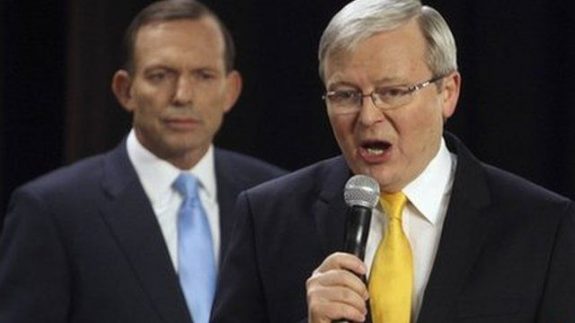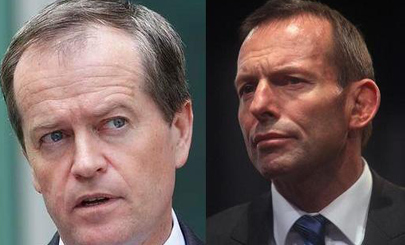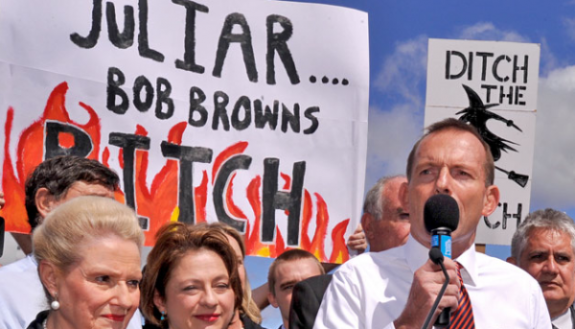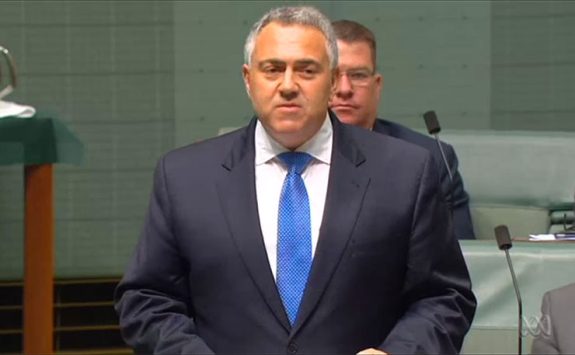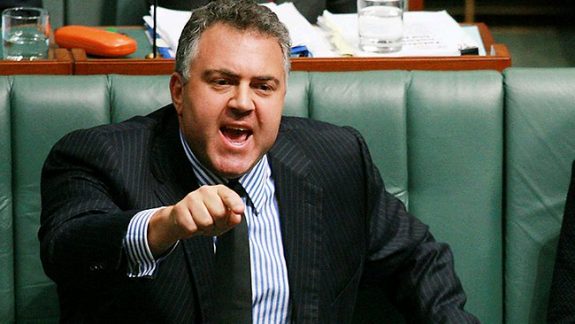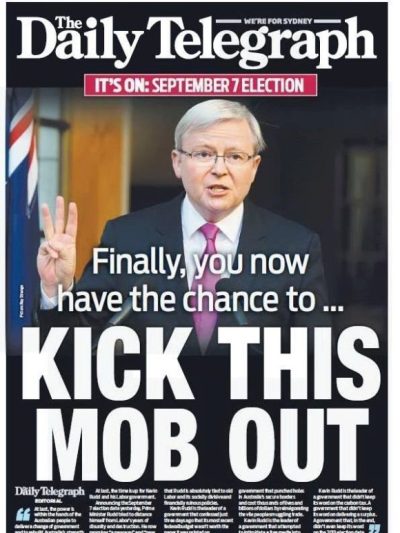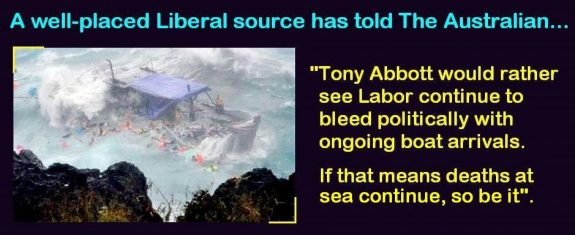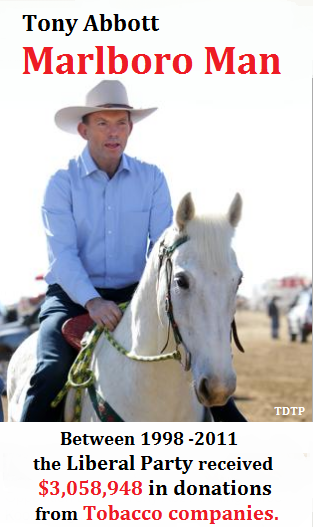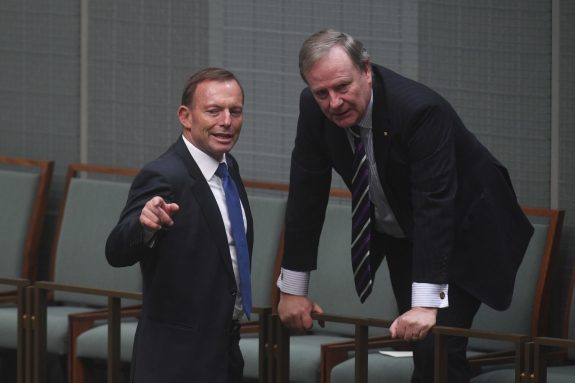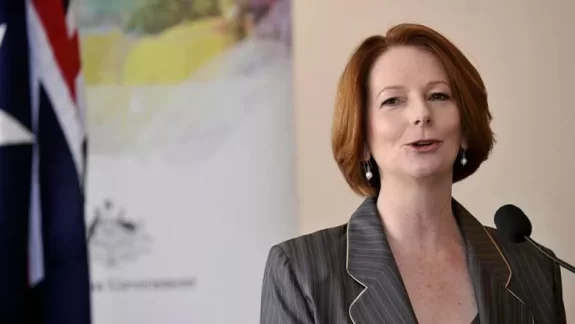Opiate of the masses

There has been a lot of angst in left-wing circles since the election of Tony Abbott and his Coalition into government. Blogs, Twitter and Facebook are all agog with posts indicating that Tony Abbott is going to be a wrecking-ball for a wide range of policies, organisations and social expectations. Under the Coalition, employee power will be smashed, unions will be outlawed, annual leave will be abolished, people on incomes under 100K will lose the right to vote, laws will be passed requiring coal-fired power stations to burn brown coal exclusively even when the power’s not needed, just in case, and small animals will be tortured in an attempt to prove that cigarettes cure cancer.
It’s not unreasonable for the left to have some fears about the approach Tony Abbott will take to government now he’s attained it. After all, the Coalition has some hard-nut right wing extremists in its fold, some even in Cabinet. Tony Abbott has been described by Kevin Rudd as “one of the most extreme right-wing conservative leaders or politicians that the Liberal party has thrown up”. The Coalition is on public record as supporting most of the ideology and specific policy suggestions of right-wing think-tank the IPA. And Tony Abbott and his Coalition have single-mindedly pursued one of the most negative agendas in history over the past term of government. So there’s reason to expect that he is now going to go early, go hard, and get many of his less popular initiatives under way while the next election is still far off.
Here’s why I think he won’t be doing that.
The first few actions of the incoming Coalition government – some of them even before swearing-in – have been viewed as the thin edge of a vindictive wedge; the first steps in the wholesale destruction of all we hold dear. But they can be viewed from a different angle, which is perfectly consistent with Tony Abbott’s approach to Opposition, to the election campaign, and now to government.
For this Coalition government, it’s all about perception. Policy and outcomes are secondary. This government knows as well as we do that the fundamentals of our economy are relatively good, in global terms. It knows that its hyperbole about a budget emergency was a politically expedient concept that now needs to be locked away. You won’t hear the Coalition talking about a budget emergency from now on, that concept has had its desired effect, and dwelling on it will raise questions about why the Coalition is not making more significant changes to the budget outlook. The Coalition knows that the NBN is not a huge issue for Australian debt, and that their alternative is inferior, and that the public actually likes the idea of fast broadband delivered to their door, so you can expect obfuscation, reviews, examinations and not a lot of actual change. The rollout will continue apace, and when it’s good and ready the Coalition just might think about a judicious adjustment to bring in some elements of its own model, just so it can say that it’s done something at the next election. The Coalition knows that the Direct Action plan is not going to work, and that the ETS has been working and has not been a “wrecking ball through the Australian economy”; it also doesn’t believe that Australia can have any impact upon global climate change even if it is real. So you can expect the repeal of the carbon tax, as one of the big ticket items on which it swears it got elected, but not a lot of Action from the Direct plan.
The most important priority for this government is not doing things. The vast majority of its election promises are to undo things, after which we’ll be back in a nice pre-Labor state of comfortable hiatus. The Coalition does not expect to make Australia better by making changes. It expects to make Australia better by letting people calm down. As Abbott has said:
“…happy the country which is more interested in sport than in politics because it shows that there is a fundamental unity, it shows that the business of the nation is normally under reasonably good management…”. (Interview with David Koch and Samantha Armytage, Sunrise).
Tony Abbott, the ex-journalist, wants to control the conversation again. For the last three years, the failings, alleged failings, ructions and supposed dishonesty of Labor have been the story. Aided and abetted by a hostile media, the Opposition has made politics continual front-page material, and has deliberately fostered interest and concern in all manner of things. Asylum seeker dog-whistling, budget emergencies, NBN appalling waste, class warfare – none of these things had very much reality to them, and all of these things were blown enormously out of proportion by the outrage of the Opposition and the media’s eternal search for the Story-of-the-Day. The net effect is a populace energised, outraged, horrified, and politically engaged – exactly what an Opposition wants, going in to an election.
The Coalition knew that elections are lost, not won. Particularly in 2013, where the one actual policy on offer from the Coalition (Tony Abbott’s PPL) was roundly debated and opposed even by some within his own party, the Coalition did not win the election on promises to build things. It won the election on its promises to undo the things that Labor had already done. Labor lost the election over the past six years, with a particular emphasis on leadership issues – issues which have no actual bearing on the governing of a country, but which added to the Coalition’s continuing barrage of concern.
Tony Abbott does not intend to lose the next election.
In order to make sure that he does not, the priority is to calm the conversation down. To take things in a “methodical, measured, calm” way. To use rhetoric that includes the words “adult”, “sober”, “calm” and “deliberate” to shape the political conversation, rather than “disaster”, “emergency”, “appalling”. To some extent, this is the transition faced by every incoming government; opposition almost demands the use of hyperbole, and government requires a more defensive approach. But with the Coalition in 2013, what may have been a necessity of politics has become a deliberate strategy.
Calming things down means keeping politics out of the media. Thus, fewer press conferences, no pandering to the 24-hour news cycle, a slower pace (compared to Kevin Rudd, this is almost a given). It means adopting a culturally neutral middle ground – one where the older white men are in charge, where success is measured in a well-turned wife and obedient children, and where men are men, women are women, and small furry animals are kept in the back yard.
Calming things down also means controlling the news. Thus the first actions of the incoming government are not actually about reducing costs or winding back bodies based on the ‘fiction’ of climate change, but rather about controlling who says (and knows) what. The new approach to boat arrivals – in that the Coalition will now give the media a weekly digest, rather than notifications upon arrival – ensures that the story of boat people will wither. The daily news cycle won’t be fed with regular news of boats, and the issue will fade off the front pages. The abolition of the Climate Commission gets rid of the body charged with providing “an independent and reliable source of information about the science of climate change, the international action being taken to reduce greenhouse gas emissions, and the economics of a carbon price” to the Australian people. It saves a pittance – the budget for the Commission was $5 million over five years. More importantly, it deprives Professor Flannery of a source of authority, it deprives the environmental movement of a source of authority, and it deprives the Australian people of a source of information. By itself, it won’t remove climate change from the front pages of the news. But the wholesale dismantling of government climate bodies will have that effect.
Tony Abbott wants you compliant, and comfortable, and happy, and smothered in marshmallow. The last thing he wants is to go making big changes that will upset people. He wants Australia to get used to the dichotomy: under Labor, you get an endless barrage of waste and fear and concern; under the Coalition you get a country that just gets on with it and lets you focus on your own life. So there will be no changes to the GST. There will be no remorseless cuts into health and education. There will be no overt attack on worker’s rights. In three years’ time, when the next election comes around, the only things the left will be able to criticise in the Coalition’s term of government will be that they dismantled the things they said they would dismantle, the things that Labor built.
Once again, the media will be an enormous assistance to the Coalition. Endless, deafening silence will help Abbott smooth the ruffled waters of Australia’s concerns. An appearance of calm and control will likely lead to actual calm, to an improved consumer and business confidence, and to better economic outcomes. The Coalition will be aided in this by circumstance. Just as Labor came to power in 2007 on the cusp of a real budget emergency – the Global Financial Crisis – the Coalition is coming to power just as Australia is showing signs of growing into a new prosperity.
Calm… or panic?
So what is the way forward from here for left-leaning progressives? The Coalition has attained government, and their ideal is to retain power for several terms at least – to be a long term government. They will attempt to do this, I believe, by not rocking the boat; by adopting and retaining many of the structural reforms that Labor put in place; by maintaining some distance from the news cycle and lulling the populace into a drowsy state of contentment. It now falls on Labor to prevent the Coalition succeeding in this. There are a couple of possible approaches that could be taken.
Labor can choose to adopt the same tactics that Tony Abbott pioneered with such success. Endless negativity, endless opposition, endless noise and fury, intended to blow up every little foible and failure of the new government into a thousand thorns of discontent. The strategy is to make sure the Coalition can’t get any clear air. After all, it worked for Tony Abbott between 2010 and 2013. Unfortunately, Labor is at a disadvantage in this battle. The mainstream media is dominated by opinions and owners hostile to Labor’s approach, and success at the Abbott model of opposition requires the involvement of the media. The media is hungry enough for stories that it might nonetheless be a viable strategy, but in a hostile environment it may prove an uphill battle.
Alternatively, Labor could attempt to rise above the example that Tony Abbott set. It could maintain a stately disdain, reserving its ire for any overt missteps or vandalism or ideologically-driven extremes emanating from the Coalition, but generally supporting or ignoring the Coalition for much of its term. Further, it could concentrate on building a new vision for the future, a policy platform that by its successes demonstrates the failures of the Coalition’s status-quo approach. The problem with this method is that it relies on missteps by the Opposition, and Tony Abbott has been astoundingly successful to date with keeping his party in line. There are many on the Coalition benches who would go too far given an opportunity, but with a deliberate don’t-offend political strategy at the helm, they may never get that opportunity. And it is astonishingly hard to win government on the basis of what you intend to do. In addition, three years of stately silence is not likely to be sufficient to prevent Tony Abbott pointing back to the hot air of 2010-2013 and blaming it all on Labor. Thus the Coalition would be bound to achieve another term or two, and this would simply reinforce the impression that ‘everything’s running smoothly, unlike under the previous mob’.
It may sound like heresy to some on this site, but the question must be asked: is it really so bad for us to have a Coalition government at the helm when they’re so intent on not offending anyone?
The answer to this depends on your expectations for a long-term future under the Coalition. To date, Tony Abbott’s opposition and government has shown no practical answer to the two-speed economy – indeed, Coalition policies will undo what little progress Labor has made in refocusing Australia’s approach to this problem. The Coalition is certainly no more supportive of education, of R&D, and of high-technology industries than were Labor. Clever country, we are not. The Coalition’s approach to climate change and mitigation of carbon emissions is well understood, and will withdraw Australia from even what little it has the ability and commitment to do in this field. And by promising to slow or halt the rollout of the NBN, if the Coalition actually intends to follow through on this promise, it is engaging in a deliberate sabotage of one of the most critical pieces of national infrastructure in history. All of these things give me no confidence that Australia’s future beyond the immediate three-year electoral cycle is at all promising.
Are we locked in to this cycle? Does life, the economy, industry and Australia’s status have to slowly stagnate under the Coalition until another inspirational Labor leader comes along with grand visions of what we might have if only? Or is there a third way?
Like what we do at The AIMN?
You’ll like it even more knowing that your donation will help us to keep up the good fight.
Chuck in a few bucks and see just how far it goes!
Your contribution to help with the running costs of this site will be gratefully accepted.
You can donate through PayPal or credit card via the button below, or donate via bank transfer: BSB: 062500; A/c no: 10495969










